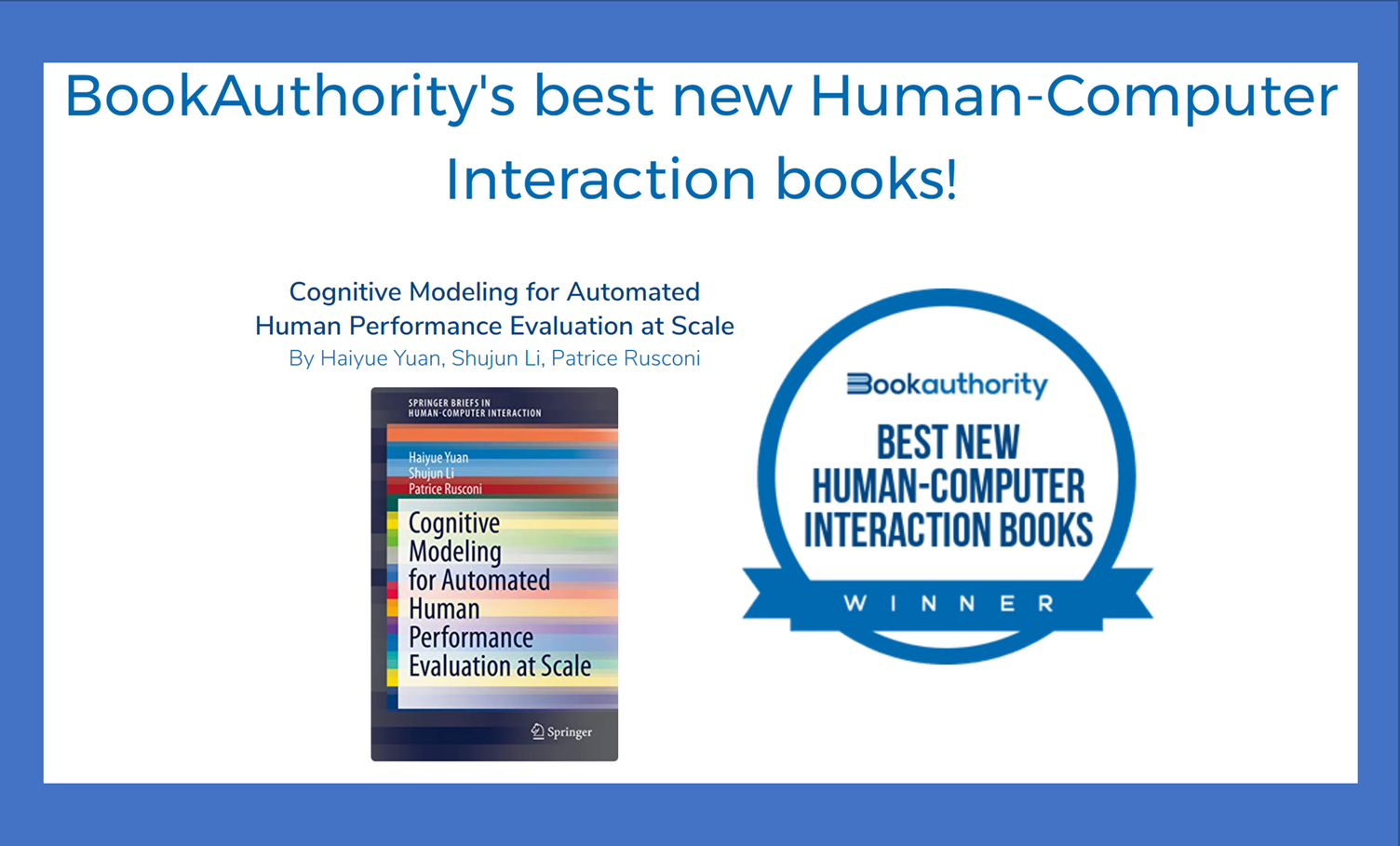A book co-authored by Professor Shujun Li, Director of Kent’s Institute of Cyber Security for Society (iCSS) and Professor of Cyber Security at the School of Computing, entitled Cognitive Modeling for Automated Human Performance Evaluation at Scale, has made it to BookAuthority’s list of the 10 best new Human-Computer Interaction books.
BookAuthority identifies and rates the best books in the world, using a range of indicators such as public mentions on online social networks, expert recommendations, ratings of readers, popularity, and sales history.
In today’s highly digitized and networked world, people regularly interact with computer systems of different kinds (eg personal computers, laptops, mobile devices, IoT devices, video games, online social media). To help researchers and user interface / experience (UI/UX) designers to develop more usable computer user interfaces (UIs), cognitive modelling software tools have been widely used, CogTool being one of them. The book provides readers with a systematic overview of state-of-the-art cognitive modelling theories, techniques and software tools, and their applications. It also introduces a new cognitive modelling software framework and a research prototype that can support large-scale modelling and simulation tasks more easily. Source code of the research prototype can be found at https://github.com/hyyuan/cogtool_plus and a more recent publication reporting more details can be read at https://doi.org/10.1145/3447534.
Professor Shujun Li said, “I am glad to see our book has been rated by BookAuthority as one of the 10 best new books in human-computer interaction to read in 2021. The book was written not just for computer science researchers, but also for psychologists, UI/UX designers and practitioners who want to learn about or use cognitive modelling tools for different purposes. I hope our readers find the book useful, and some can join our ongoing efforts to develop more powerful cognitive modelling techniques and tools in future.”

